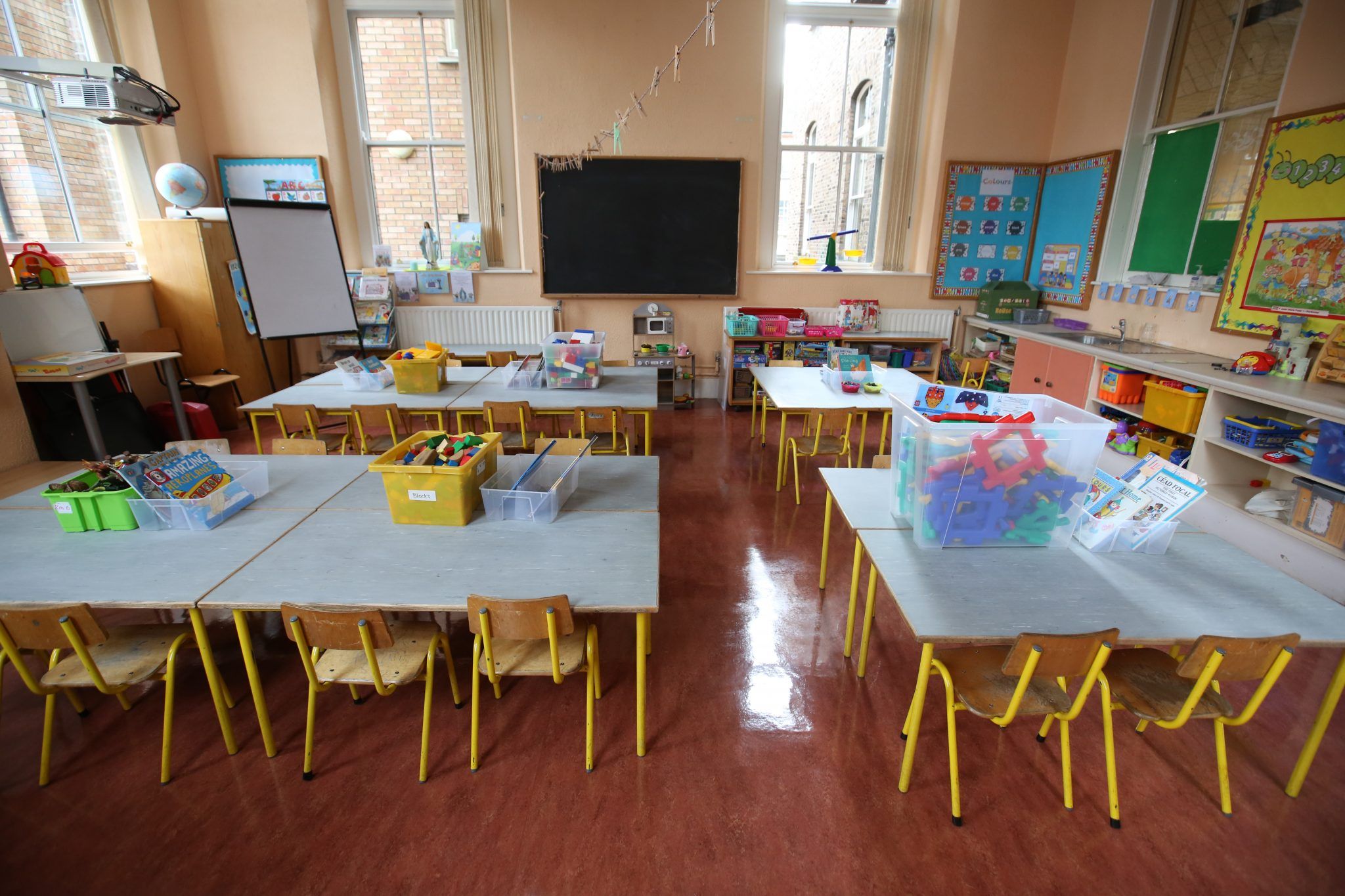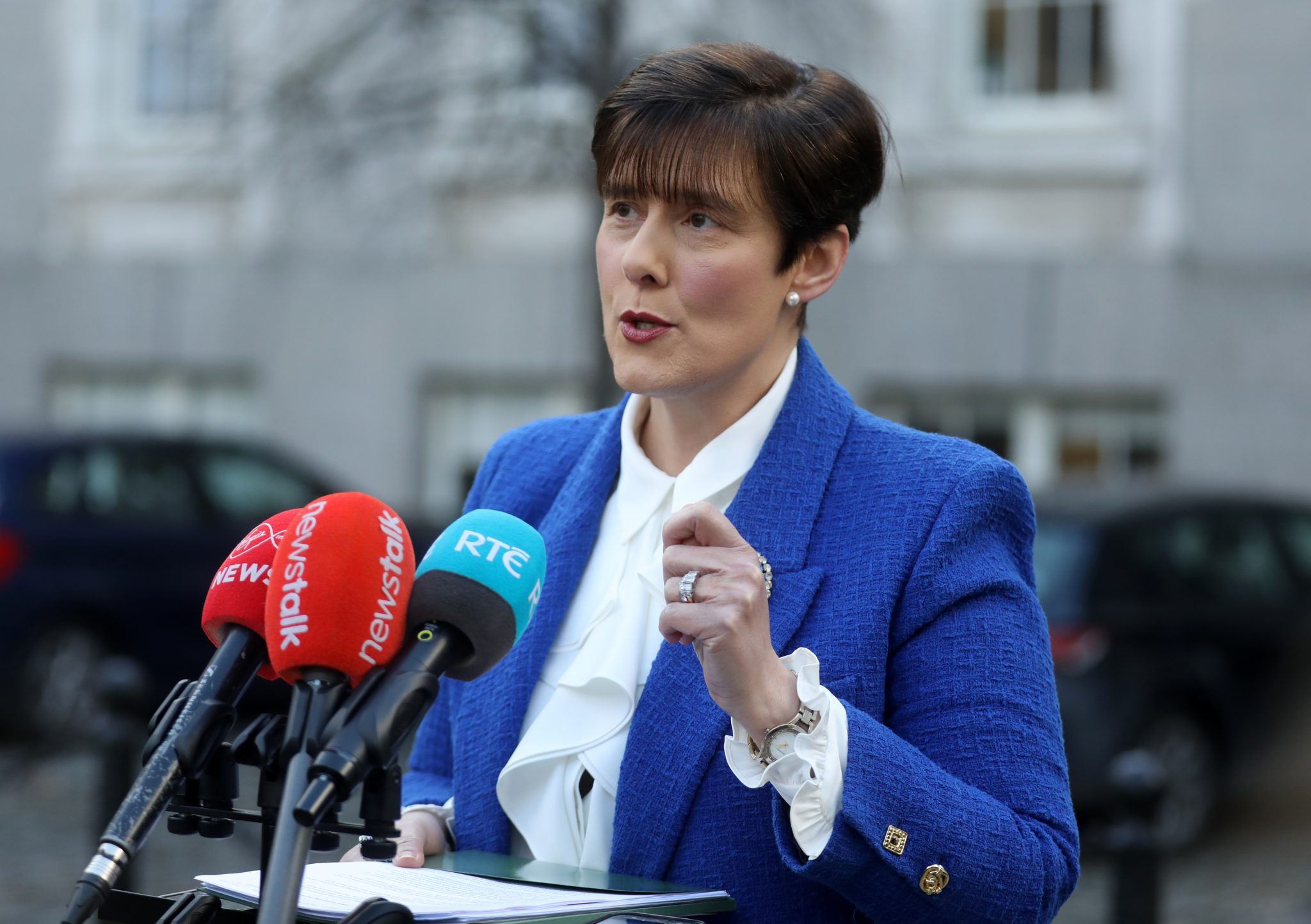
News

Share
4th April 2023
10:52am BST

 LGBTQ+ issues will form a key part of the revamped SPHE curriculum. (Credit: Rolling News)[/caption]
The review found that the current SPHE curriculum, which has been left largely untouched for a number of decades, was too focused on biology and failed to reflect the complex reality of teenagers' lives in the 21st century.
In the newly-set-out overview of the updated curriculum, emotional wellbeing, healthy choices and positive relationships will all form central pillars of what the Department for Education hope will be broad and wide ranging syllabus.
Providing teachers with the necessary training in delivering SPHE specific lessons will also be a big emphasis within the newly-laid plans, due to many teachers not feeling well-equipped in the subject matter.
[caption id="attachment_771745" align="alignnone" width="640"]
LGBTQ+ issues will form a key part of the revamped SPHE curriculum. (Credit: Rolling News)[/caption]
The review found that the current SPHE curriculum, which has been left largely untouched for a number of decades, was too focused on biology and failed to reflect the complex reality of teenagers' lives in the 21st century.
In the newly-set-out overview of the updated curriculum, emotional wellbeing, healthy choices and positive relationships will all form central pillars of what the Department for Education hope will be broad and wide ranging syllabus.
Providing teachers with the necessary training in delivering SPHE specific lessons will also be a big emphasis within the newly-laid plans, due to many teachers not feeling well-equipped in the subject matter.
[caption id="attachment_771745" align="alignnone" width="640"] From 2025, primary school students will also be taught a revamped version of SPHE. (Credit: Rolling News)[/caption]
This will be a stark change for SPHE, which until recently was one of the only secondary cycle subjects for which no specific qualification was needed.
A draft detailing the new syllabus was published late last year, but an updated version, which has been fully finalised by the National Council for Curriculum and Assessment (NCCA), will be released imminently.
With the revamped curriculum set for just junior cycle students this year, it is hoped that similar SPHE reforms will take place for senior cycle students in 2024 and the following year for primary school students.
[caption id="attachment_771743" align="alignnone" width="640"]
From 2025, primary school students will also be taught a revamped version of SPHE. (Credit: Rolling News)[/caption]
This will be a stark change for SPHE, which until recently was one of the only secondary cycle subjects for which no specific qualification was needed.
A draft detailing the new syllabus was published late last year, but an updated version, which has been fully finalised by the National Council for Curriculum and Assessment (NCCA), will be released imminently.
With the revamped curriculum set for just junior cycle students this year, it is hoped that similar SPHE reforms will take place for senior cycle students in 2024 and the following year for primary school students.
[caption id="attachment_771743" align="alignnone" width="640"] Gender identity is a major sticking point for critics of the reforms. (Credit: Rolling News)[/caption]
Gender identity is a major sticking point for critics of the reforms. (Credit: Rolling News)[/caption]
"Students should appreciate that sexual orientation, gender identity and gender expression are core parts of human identity, and each are experienced along a spectrum".Push back to these teachings came from a number of groups, with the Catholic Primary School Management Association warning that transgenderism should not be taught due to the risk of "psychological contagion". [caption id="attachment_771742" align="alignnone" width="640"]
 The teaching of transgenderism has been a key issue for religious groups. (Credit: Rolling News)[/caption]
Responding to such concerns, in which certain sectors of society argued that promoting gender ideology was against their religious and educational values, a new 26 page specification which dealt with the issue was released.
In a reworked wording of the aforementioned learning outcome, it was stated that "Students should appreciate the breadth of what constitutes human sexuality and how sexual orientation and gender identity are experienced and expressed in diverse ways".
The term gender identity itself was also defined as a "person's felt internal and individual experience of gender which may or may not correspond with the sex registered at birth".
[caption id="attachment_771741" align="alignnone" width="640"]
The teaching of transgenderism has been a key issue for religious groups. (Credit: Rolling News)[/caption]
Responding to such concerns, in which certain sectors of society argued that promoting gender ideology was against their religious and educational values, a new 26 page specification which dealt with the issue was released.
In a reworked wording of the aforementioned learning outcome, it was stated that "Students should appreciate the breadth of what constitutes human sexuality and how sexual orientation and gender identity are experienced and expressed in diverse ways".
The term gender identity itself was also defined as a "person's felt internal and individual experience of gender which may or may not correspond with the sex registered at birth".
[caption id="attachment_771741" align="alignnone" width="640"] Minister for Education Norma Foley has recently stated she is favour of "parental consent". (Credit: Rolling News)[/caption]
It is still unknown whether individual schools will be able to adjust the curriculum according to their own religious and educational values.
Although, parents are entitled to opt their child out of any lessons or subjects which they feel uncomfortable with their child partaking in.
Last month, Minister for Education Norma Foley said that "I believe in parental consent- and at no point would I seek to undermine that".
Related Articles:
Minister for Education Norma Foley has recently stated she is favour of "parental consent". (Credit: Rolling News)[/caption]
It is still unknown whether individual schools will be able to adjust the curriculum according to their own religious and educational values.
Although, parents are entitled to opt their child out of any lessons or subjects which they feel uncomfortable with their child partaking in.
Last month, Minister for Education Norma Foley said that "I believe in parental consent- and at no point would I seek to undermine that".
Related Articles:
Explore more on these topics: